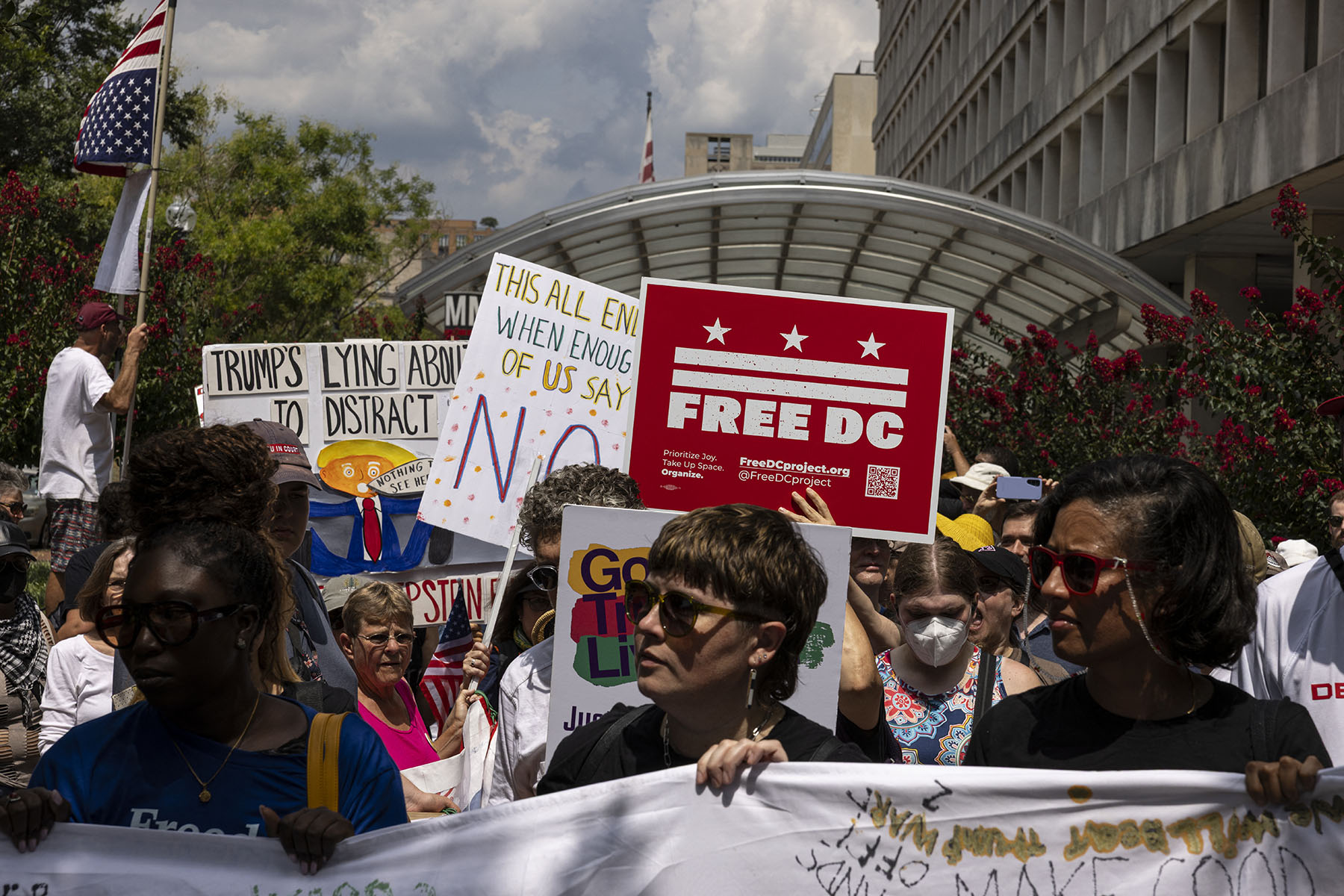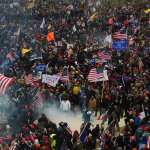Nearly an hour into Friday night’s game between the Washington Spirit and Racing Louisville FC, a chant started to spread throughout the stadium that briefly silenced the television announcers for the women’s soccer match.
“Free D.C.! Free D.C.! Free D.C.!” the spectators chanted at the stadium in the southwest quadrant of the nation’s capital.
It was a response to Republican President Donald Trump’s militarized takeover of policing in the District of Columbia that began last week; it was also a nod to the women-founded grassroots movement that has been organizing Washington’s 700,000 residents to resist federal interventions during the early months of the second Trump administration: Free DC.
“We started thinking about the need to have a clear anti-dictator plan, probably starting in October,” said Keya Chatterjee, one of four co-founders, along with Kelsye Adams, Nee Nee Taylor and Alex Dodds.
Nearly “every single time Trump made a speech, he said he was going to take over D.C., and it was not being covered very much … so we decided we were going to take that seriously,” she added.
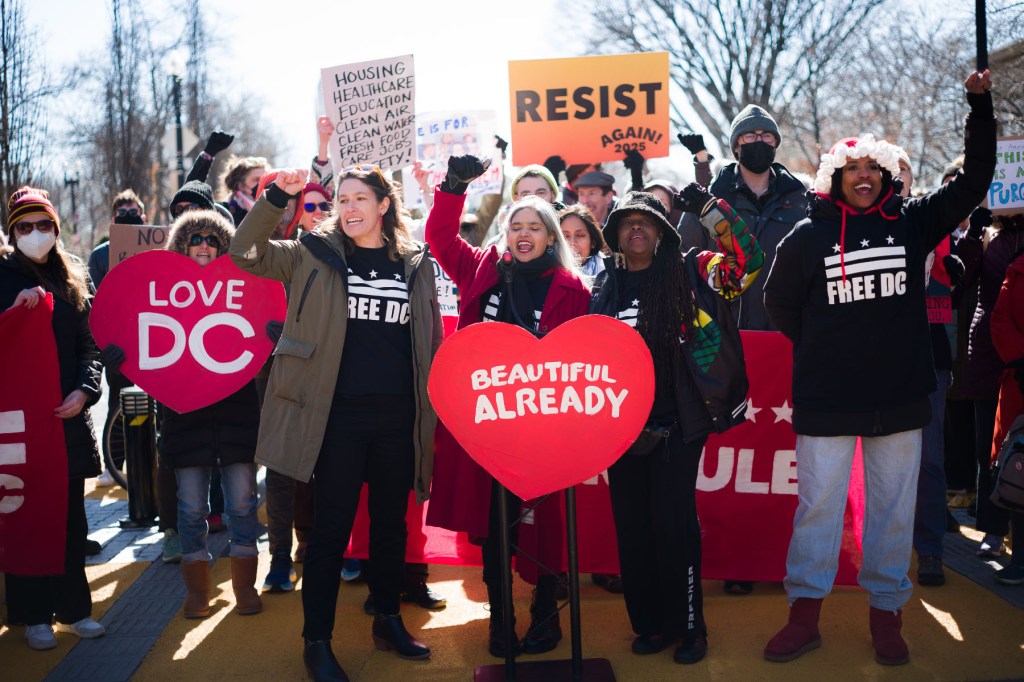
Free DC is the latest embodiment of a generations-long fight by District of Columbia residents to operate autonomously from the federal government. Its ultimate goal is statehood. In the 1870s, Congress dismantled the elected local government and installed federal commissioners. It wasn’t until the 23rd Amendment to the U.S. Constitution was ratified in 1961 that people in the district could vote for president. The enactment of the District of Columbia Home Rule Act in 1973 established that the city could again elect its own local government. To this day, the district does not have representatives who are able to cast votes in Congress despite having a larger population than Wyoming or Vermont — and all city-passed policy is reviewed by the same Congress.
Efforts to stymie the District of Columbia’s self-determination have been bipartisan: Democratic President Joe Biden in 2023 backed a congressional effort to overturn a years-in-the-making revision to the city’s more than hundred-year-old criminal code, which had led to the city having one of the highest incarceration rates in the country, disproportionately impacting Black men. The revised criminal code was approved by the Democratic-led Council of the District of Columbia, which had to overcome Democratic Mayor Muriel Bowser’s veto, and was supported by a strong majority of the city’s residents.

Support The 19th’s ambitious plans
As part of our three-year strategic plan, we’ll keep showing up in the way you’ve told us you need us to: as your relatable guide to an unequal nation. Your support will help drive our plan forward.
In response, a campaign called Hands Off DC was formed to oppose the federal government’s meddling in city affairs. Free DC builds on that by broadening the movement for the District of Columbia’s autonomy, said co-founder Adams, aiming to center voices of people of color in fights to defend and protect immigrants, the unhoused, LGBTQ+ people and disabled members of the community.
Adams noted that earlier this summer, 56 Democrats in the U.S. House joined with Republicans to block the district’s Local Resident Voting Rights Amendment Act of 2022, which granted non-U.S. citizens the right to vote in local elections after 30 days of city residency. Municipalities in California, Maryland and Vermont allow non-citizen voting in local elections.
“The first thing we did was decide what the strategy of Free DC would be compared to other campaigns — and we settled on a people-led campaign,” Adams said.
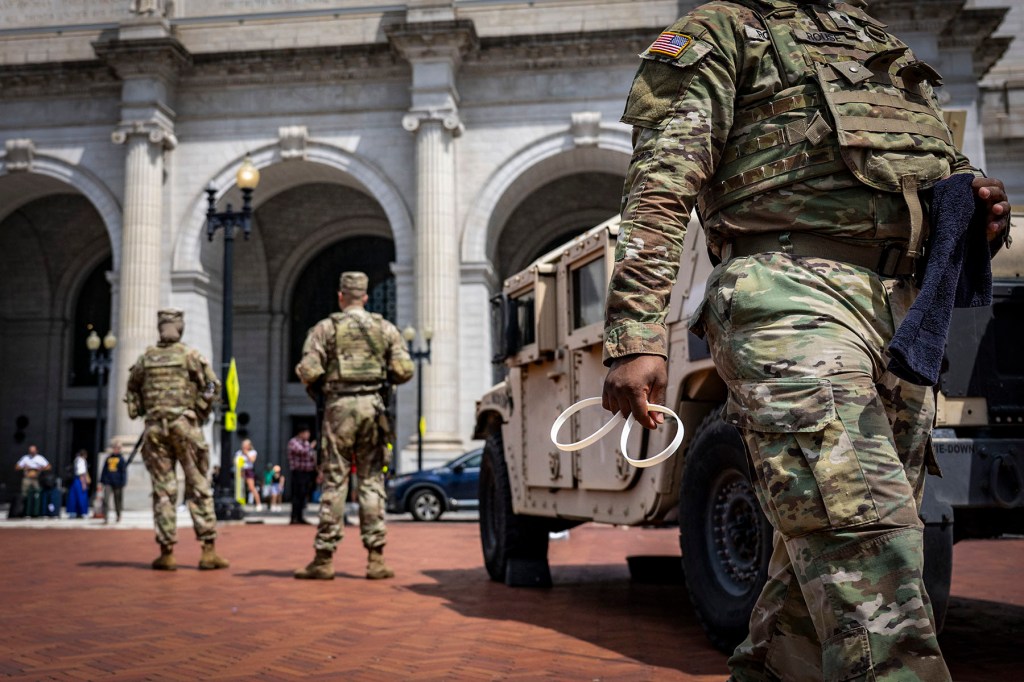
Adams sits on a seven-member advisory council that helps guide Free DC’s work. Its three-person leadership team includes Chatterjee, Dodds and Taylor. Working groups are organized around areas of interest like accessibility, communications, Congress and the arts. Teams in each of the city’s eight wards hold house parties, organize canvasses and hold monthly meetings open to the public. There are also constituency groups for college students, government workers, parents and caregivers. The first step to getting involved is attending a virtual or in-person training. Elected representatives of the city’s Advisory Neighborhood Commissions act as conduits between the people and the council.
In terms of metrics, Free DC’s goal is to mobilize about 25,000 District of Columbia residents — the 3.5 percent of the city’s population that Harvard University political scientist Erica Chenoweth says is required to overcome a dictator. Adams said the organization’s Instagram account has gained 20,000 followers over the past week, hitting about 38,000 as of Monday morning.
Chatterjee, who is also a novelist and works with Freedom Trainers, which teaches people how to resist authoritarian regimes via noncompliance, said Free DC is focused on three principles that worldwide pro-democracy movements have shown are effective for taking on autocrats: showing solidarity, taking up space and prioritizing joy. She noted that research shows that during a democratic backslide, there is only a 7 percent chance of not ending up in an authoritarian state without civil resistance but a 50 percent chance when there is.
-
Read Next:
-
Read Next: Who’s questioning women’s right to vote?
“I don’t like the odds of having a less than 10 percent chance of success, and rising up together in a civil resistance also has all these positive externalities like forming relationships and experiencing joy together and being in community with your neighbors, so of course, we should give it a shot,” Chatterjee said.
Free DC has mobilized rallies of support for fired federal workers, distributed call sheets to contact members of Congress, shared requests from organizations supporting unhoused city residents, and distributed hotlines for people to report where ICE and other federal law enforcement are active. There are currently grassroots efforts to protect the city’s youth by stationing adult volunteers at public transit stops and near schools to counter what one resident described on an organizing thread as “this moment of overpolicing and autocracy.”
Chatterjee said a clear takeaway from international pro-democracy movements is that “people rising up in the capital makes a big difference, and so that means we have to really study and understand and train our people.”
“We are living under occupation right now, and this is the capital of this country, and when the capital of the country has dissent silenced, that is not just a problem for the people in the capital of the country, that is a problem for the entire country,” she added.
Chatterjee said that in the district, “people understand the assignment.”
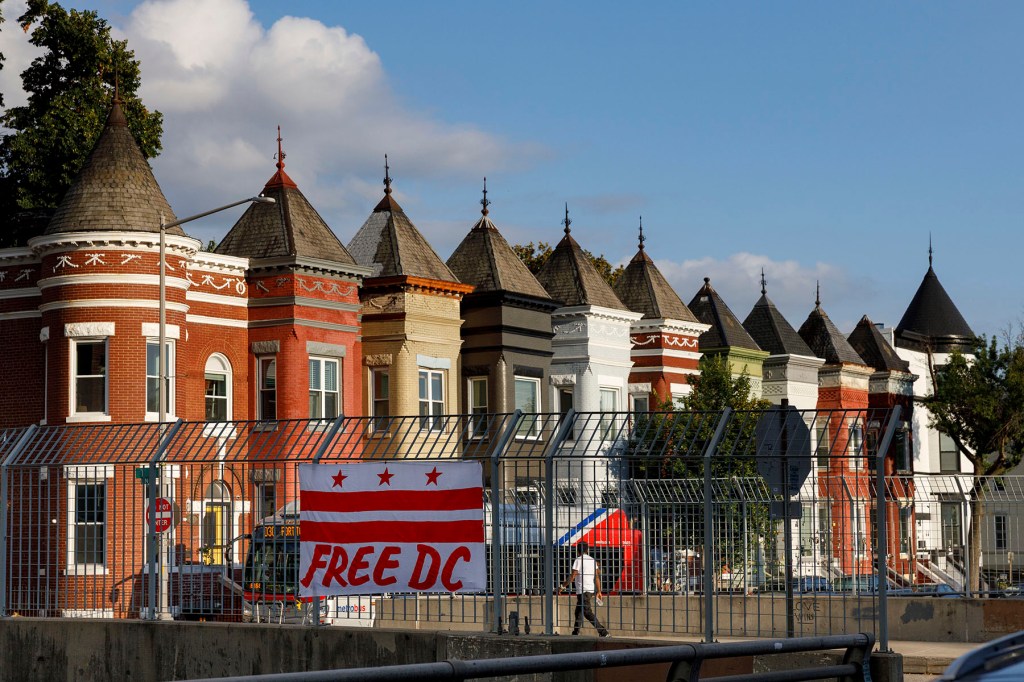
Jeanine Pirro, Trump’s U.S. attorney for the District of Columbia, who acts as both federal and local prosecutor in the city, said last week she was struggling to obtain grand jury indictments for people charged with ICE interference. Ward leaders remind people to go outside at 8 p.m. many nights to bang pots and pans — a sign of solidarity among neighbors used in other resistance movements, like during Myanmar’s military coup. But most of all, Chatterjee said, “we are going to prioritize joy, because they want us to feel afraid, and that is the dictators’ biggest weapon.”
Early Saturday morning, on a group message between ward residents, someone shared the video of the “Free DC” chant from the Washington Spirit game the night before:
“It was a tough day, but we found joy in a lot of places, and we even clocked some wins — thanks to this village! Thank you fam! F&@k the haters, we love DC!”
